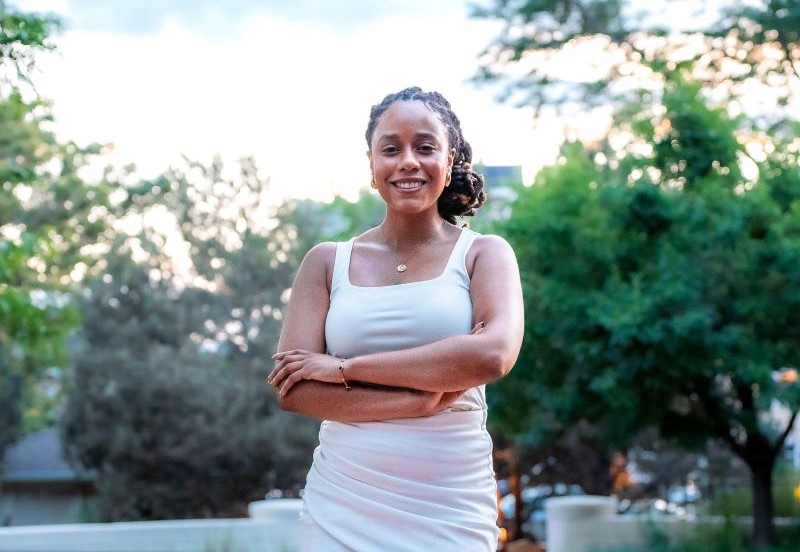Rap music, hummingbirds, and AI—the focuses of Americans can be so vastly different. Some people are wrongfully incarcerated because of their storytelling method, others find solace in nurturing hummingbirds, while others are finding ways to live forever through artificial intelligence. All of their journeys are illuminated in detailed accounts of their life’s purpose in the U.S. Documentary Competition program of Sundance 2024. Kemba, Bronx-based rapper, travels around the world to uncover the realities of the surveillance of rappers and the wrongful accusations of crimes based on their lyrics; Terry Masear, a hummingbird rehabilitator, rescues hummingbirds around Los Angeles and cares for them until they take flight once again; Bina and Martine, immortalists, create Bina48, a robotic human-like head with the life-data and appearance of Bina, that travels across the country showcasing its human-like responses.
“Don’t help your enemies destroy you,” rapper Bun B tells Kemba in “As We Speak,” directed by J.M. Harper. Criminalized music holds a long history in America, as is emphasized in this MTV-produced documentary. The audience follows Kemba’s journey and resonates with the daunting feeling that he may be incarcerated due to the misinterpretation of his rap lyrics by a jury.
Kemba travels to Chicago, Atlanta, Houston and London to speak with rapper representatives about the discriminatory practices they face in criminal systems. Punitive prosecution is displayed throughout the documentary as rap is seen as “autobiography” rather than artistic expression. Ice T is seen in a cameo defending his lyrics on a talk show, arguing that the people that the lyrics are for deserve to hear the stories about their environments.
Lawyers, civil servants, and professors talk about the “racist prosecution” methods used against rappers. Music genres deemed “white” do not face the same consequences as vocalists of the rap genre. Termed “street griots,” there is an iconic scene of “gang-affiliated” rappers acting as Shakespearean Montagues and Capulets. The words of Shakespeare are violent, anti-political and rash, but are not deemed criminal, as the words of today’s rappers.
The documentary highlights the number of rappers in Chicago alone that have died in affiliation with their music, which notoriously echoes that even if the criminal justice system does not prosecute these storytellers, their lives may end in the name of song. “As We Speak” successfully explores diasporic issues that need to be changed from the ground up.

Hummingbirds, orchids and a Beverly Hills abode hit the screen vividly as Terry Masear, a hummingbird caretaker gives life back to the wildlife populace. In “Every Little Thing,” director Sally Aitken highlights the focused intensity of Terry’s nurturing while displaying the brilliant colors of hummingbird feathers. Terry, a childless widow, feeds hummingbird dependents with a beak-like syringe. A cry to save the birds, “Every Little Thing”’s 1.5-hour runtime, is a long visual representation on how to account for nature.
The camera zeroes in on the magnificence of the birds. They gloriously fly, flirt and regain the will to live, while in the “paradise” of the hummingbird rehabilitation sanctuary. The female hummingbirds, described as loyal, strong and maternal, pair tastefully next to Terry’s aura, as she pats their back.
Terry talks about her life with her “genius” husband, gaining numerous graduate degrees, and finally falling in love with the birds. She describes America as the land of dreams, and questionably snickers at her dream choice. She damns people for being self-centered in their handling of wildlife, after receiving a featherless hummingbird.
“Their attitude towards nature (is not to my standard),” Terry roars. Although Terry grew up in rural Wisconsin, where “hard work” is the main personality trait and farming is the main industry, she does not deem it a nurturing environment. The juxtaposition of being raised in a nature-filled place, but not garnering a nurturing relationship with nature in that place is upheld in the documentary through Terry’s perspective. She points out that she was not “big on trust” because of where she grew up. Terry reinforces trust within herself by building secure homes for her hummingbirds, feeding them with care, and building their strength to explore the world on their own. A slow-paced and vibrant documentary, “Every Little Thing” will give you a perfect calm before a nap on a Sunday afternoon.

Finally, “Love Machina” encompasses immortality, race, interracial relationships, trans identification and the defeat of life-threatening sickness in one documentary. Martine and Bina (Marbina), a couple of 40 years, have a shared goal to “stay in love forever.” They create a robot named Bina48 that holds a data diary of Bina’s interests, including the love of her partner. Together, the couple created a foundation inspired by Octavia Butlers “earthseed,” called “Terasem,” that serves as a hub for immortal-based innovation. The purpose of the foundation is to take DNA and to create consciousness through technology. The cult-like documentary may be feared by some, but the overall idea is a peak interest point for today’s artificial intelligence fanatics.
The robot, Bina48, is seen traveling worldwide to be featured and fixated on by the stock exchange, universities, conferences and tech nerds. Most humanlike robots created have been male and white; Bina48 is a Black woman, although she states she is not defined by her color. Her identity is questioned by Black academics, who are in awe of her abilities, and also question her ability to represent Black women due to her programming and appearance being crafted by mostly white males. Consciousness is questioned by scholars throughout the documentary because the goal of humanlike robots is to give consciousness an embodiment. Bina48 is a robot that is dependent on human upgrades in order for it to ingest problems of the now. So, without consistent upgrades, Bina48 will fall to the wayside with the rest of outdated technology, which puts a downer on her Sundance debut.
Marbina believes that “persistence is omnipotence” and that there is a benevolent singularity in the world, universe and ultimate reality. They want robots to display the deep creativity and empathy that they have upheld in their lives. Bina, a black woman, and Martine, a white Jewish trans-woman, redefine societal norms within their livelihoods. Their goal of longevity through technology, may die with them along with the notion that they can “transcend death” through their radical documentation and technological implementation. Future generations will have to uphold “Love Machina”’s message, as Marbina will not be around to do it.












